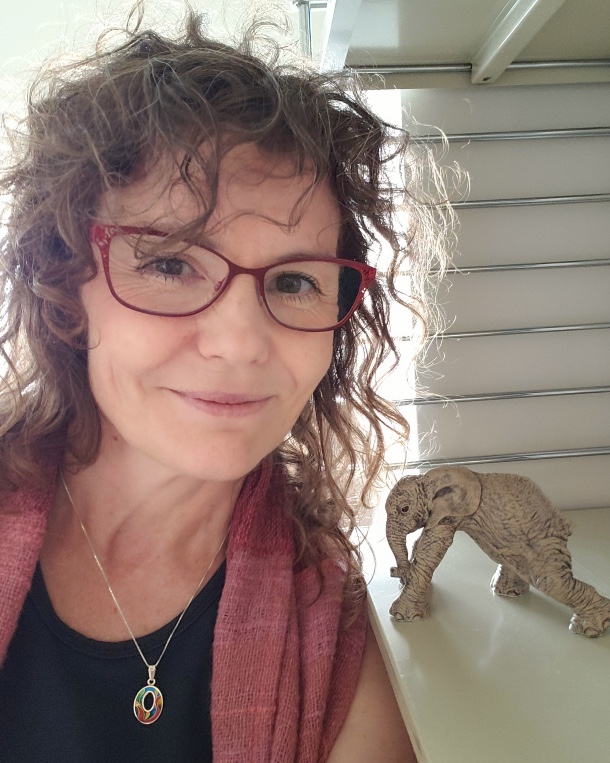Tracey O'Sullivan is a full professor at the Interdisciplinary School of Health Sciences, which is part of the Faculty of Health Sciences, University of Ottawa. Her research program examines community resilience and strategies to support high-risk populations during pandemics and other types of disasters. Professor O’Sullivan’s work looks at resilience among older adults, with a specific focus on stroke survivors and family caregivers. Her work emphasizes how deficit-oriented discourse in disaster media, (i.e., ageism in media coverage) can undermine inclusive engagement of high-risk populations in social policy development. Professor O’Sullivan has been a guest panelist at the United Nations International Office for Disaster Risk Reduction (UNISDR) Platform Meeting for the Americas where she spoke about high-risk populations as agents of change in disaster risk reduction. She is the associate editor of a book published in 2021 on health-related disaster research methods written for the World Health Organization. She is also a member of several international teams studying the psychosocial impacts of the COVID-19 pandemic, including one project looking at resilience among older adults. She has published numerous articles on the social gradient of risk during pandemics, psychosocial supports for high-risk populations during disasters, the effects of the pandemic on health care workers, and contingency planning for family caregiving. Her publication, “From SARS To Pandemic Influenza: Framing of High-Risk Populations” (2019), highlights the need for media analyses and discourse analysis of government communications (including planning frameworks) to examine ageism and other forms of discriminating discourse in order to promote more inclusive language that supports asset literacy.
Tracey O'Sullivan

Profile
Tracey
O'Sullivan
Full Professor
2002, Ph.D., Exercise Sciences (Exercise Psychology/ Physiology), Queen's University
1997, M.A., Sport ans Exercise Studies (Specialization: Health Promotion), University of Victoria
1989, B.A./BPHE, Physical & Health Education (minor: Psychology), Queen's University
Room
E250E Lees Campus
Phone
613-562-5800 ext. 8898
Email
Biography
Research interests
- Resilience and psychosocial stressors
- Family caregiving for persons with Dementia or recovering from stroke
- Occupational supports for employed family caregivers and essential service personnel
- Emergency preparedness and resilience-oriented interventions to reduce vulnerability
- Disaster response and high risk populations
Publications
- Yin, C., Pang, M., Guerra, F., Laxer, R., Law, M., O’Sullivan, T., Schwartz, B. & Khan, Y. (2022). Rising Through the Pandemic: A scoping review of quality improvement in public health during the COVID-19 pandemic, BMC Public Health, 22:248. https://bmcpublichealth.biomedcentral.com/track/pdf/10.1186/s12889-022-12631-0.pdf
- Oostlander, S., Champagne-Poirier, O. & O’Sullivan, T. (2022). Media portrayal of older adults across five Canadian disasters, International Journal of Aging and Human Development, 94(2), 234-250. https://journals.sagepub.com/doi/pdf/10.1177/00914150211024173
- Al-Baldawi, Z., Pickering, C., Champagne-Poirier, O. & O’Sullivan, T. (2021). Framing of youth as a high-risk population in Canadian disaster news media, International Journal of Disaster Risk Reduction, 58. https://www.sciencedirect.com/science/article/pii/S2212420921001400
- Champagne-Poirier, O., Carignan, M., David, M., O’Sullivan, T. (2021). Understanding and quantifying: A mixed-method study on the journalistic coverage of Canadian disasters, International Journal of Qualitative Methods, 20. https://journals.sagepub.com/doi/full/10.1177/1609406921990492
- Pickering, C., Dancey, M., Paik, K., & O’Sullivan, T. (2021). Informal Caregiving and Disaster Risk Reduction: A Scoping Review, International Journal of Disaster Risk Science. https://link.springer.com/content/pdf/10.1007/s13753-021-00328-8.pdf
- Oostlander, S., Bournival, V. & O’Sullivan, T. (2020). The roles of Emergency Managers and Emergency Social Services Directors in disaster risk reduction in Canada, International Journal of Disaster Risk Reduction. https://www.sciencedirect.com/science/article/pii/S2212420920314278
- Khan, Y., Brown, A., Gagliardi, A., O’Sullivan, T., Lacarte, S., Henry, B., Schwartz, B. (2019). Ready or Not? The development of performance indicators for public health emergency preparedness using a modified Delphi approach, PLoS ONE, 14(12), e0226489. https://www.ncbi.nlm.nih.gov/pmc/articles/PMC6927653/pdf/pone.0226489.pdf
- Khan, Y., Tracey, S., O’Sullivan, T., Gournis, E. & Johnson, I. (2019). Retiring the flip phones: Exploring social media use for managing public health incidents, Disaster Medicine and Public Health Preparedness, 13(5-6):859-867. https://www.cambridge.org/core/journals/disaster-medicine-and-public-health-preparedness/article/retiring-the-flip-phones-exploring-social-media-use-for-managing-public-health-incidents/A52DE0472E3722102561E18D9D8DEC39
- O’Sullivan, T. & Phillips, K. (2019) From SARS to Pandemic Influenza - The Framing of High-Risk Populations, Natural Hazards, 98, 103-117. https://link.springer.com/article/10.1007/s11069-019-03584-6
- Khan, Y., O’Sullivan, T., Brown, A., Tracey, S., Gibson, J., Généreux, M., Henry, B. & Schwartz, B. (2018). Public health emergency preparedness: A framework to promote resilience, BMC Public Health, https://bmcpublichealth.biomedcentral.com/articles/10.1186/s12889-018-6250-7
- O’Sullivan, T., Fahim, T. & Gagnon, E. (2018). Asset Literacy Following Stroke: Implications for Disaster Resilience, Disaster Medicine and Public Health Preparedness, 1-9. https://www.ncbi.nlm.nih.gov/pubmed/29039291
- Tracey, S., O’Sullivan, T., Lane, D., Guy, E. & Courtemanche, J. (2017). Promoting Resilience Using an Asset-Based Approach to Business Continuity Planning. SAGE Open, 7(2). http://journals.sagepub.com/eprint/yqnRvYJPYTi7pVUSBYDQ/full
- O'Sullivan T.L., Kuziemsky, C.E., Corneil, W., Lemyre, L., & Franco, Z. (2014). The EnRiCH Community Resilience Framework for High-Risk Populations. PLOS Currents Disasters, http://currents.plos.org/disasters/article/the-enrich-community-resilience-framework-for-high-risk-populations/
- O'Sullivan, T.L., Corneil, W., Kuziemsky, C.E. & Toal-Sullivan, D. (2014). Use of the Structured Interview Matrix to Enhance Community Resilience Through Collaboration and Inclusive Engagement, Systems Research and Behavioral Science, 32(6), 616-628. https://onlinelibrary.wiley.com/doi/abs/10.1002/sres.2